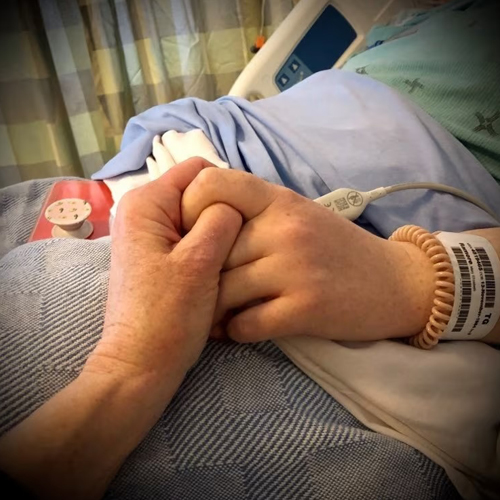How Can I Support Someone With PSC?
Caregiving can vary from providing emotional support to actively managing all aspects of PSC. If your loved one is not experiencing symptoms, your role as a caregiver might be minimal. If your loved one is experiencing symptoms, it may be more difficult for the person with PSC to manage on their own. They may want and need your support. Attending medical appointments, managing medications, and being a sounding board are a few ways caregivers can help.
Caregivers of pediatric patients have the unique role of being both parent and caregiver.


Educate yourself about PSC
Learning about primary sclerosing cholangitis enables you to offer better support and anticipate potential complications. Use discretion when searching the internet for information about PSC. Ensure the information is coming from a reputable source and is up to date. PSC Partners and PSC Partners Canada websites are reliable sources for up to date information.
The more you learn about PSC and its symptoms, the better equipped you will be to support your loved one with PSC. This may allow you to better understand what the person with PSC is experiencing. The physician’s explanations and treatment plans will be more understandable. Additionally, understanding how PSC may progress enables you to better anticipate what the future may bring.
Read more about common PSC symptoms and how they vary.
Become an advocate for the person with PSC
Many doctors are not familiar with PSC since it is a rare disease. Don’t be afraid to ask questions or ask for a 2nd opinion. A PSC diagnosis can be emotionally and physically overwhelming. As a caregiver, you’re in a position to advocate for the person with PSC (with their consent) when they are unable to.
As PSC symptoms change, your role may evolve. It can become harder for people with PSC to stay on top of things due to symptoms such as brain fog and fatigue. With symptoms such as brain fog and fatigue, the person with PSC may need help explaining how they feel or what they need and as a caregiver, you can help them communicate with medical staff. For many there is an emotional component to living with a chronic disease. A trusted caregiver can provide both comfort and solutions during times of strong emotions.
Get tips on managing medical records and other helpful information.

Remember to take care of yourself
Caring for someone with a chronic illness can feel like a balancing act. Looking out for the patient’s physical and emotional health as well as your own is a huge job. While the patient might seem like the main priority, it’s essential to focus on your self-care and seek help when you need it in order to be there for your loved one.
Key considerations are maintaining your own health, getting support when needed, and managing your own stress. Many other caregivers have been where you are and can offer tips along the way.

Get support from other caregivers and family members
A PSC diagnosis can be overwhelming and isolating. Connect with other caregivers supporting someone with PSC.
- Join the PSC Partners Facebook groups – open and closed (private)
- Read Jane’s story about being a caregiver to a teenager
- Find a mentor through PSC Partners Canada
- Join any upcoming Zoom Rooms
- Attend local meet ups and PSC Partners events
- Join the mailing list to receive the quarterly e-newsletters and to be notified about in-person meetups in Canada and PSC Partners’ annual patient conference
Key facts about PSC
- PSC is considered a rare disease in Canada, impacting over 4,000 Canadians
- More than 75% of PSC patients have ulcerative colitis
- The PSC Partners Patient Registry collects health information to help researchers find treatments
Related Resources

Holding your own fundraiser is a great way to get involved with PSC Partners Canada and help fund research to find treatments for PSC. A fundraiser can take on many shapes and forms, just be sure to follow these fundraising guidelines.

Some individuals affected by primary sclerosing cholangitis (PSC) may encounter few, if any, symptoms. Commonly experienced symptoms can include pain, fatigue, pruritus, jaundice, depression, as well as chills and fever.

Untreated acute cholangitis (bacterial cholangitis) in primary sclerosing cholangitis can cause serious complications. Learn the signs of acute cholangitis and when to seek medical care.


















